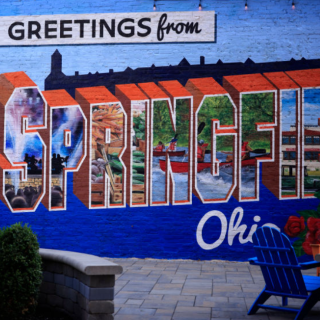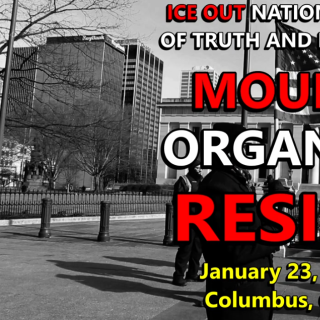When one thinks of communities that are facing the problem of white privilege head on, Bexley Ohio is probably not high on the list. With their racial demographics showing 88% white, compared to the national average of 61%, dialogues about white privilege seem distinctly out of place. Yet that is exactly what happened at the Bexley Public Library on July 11. Underground at the bottom of the library perhaps the most uncomfortable topic was thrust into the bright air by a highly eager crowd of both Bexley residents and members of surrounding communities.
The event was created by: Suzanne Roberts, co-founder of Safe Conversations About Race; Dr. Maurice Stevens, Professor from the Department of Comparative Studies at The Ohio State University; and Mary Lou Langenhop. Participants began showing up half an hour before the event started and there was quite literally a line out the door of unregistered people hoping to be included. The three or four facilitators in charge of admission were almost overwhelmed by all the people, and the tight hallway soon filled with clamor. Eventually everyone was able to filter into the half-court sized auditorium, now strewn with small tables arranged all throughout the space. The racial makeup of the room, now seated, was diverse. However, there was a clear majority of women in the room. The age range was large but noticeably shifted towards the elderly.
Mary Lou Langenhop opened the night with an introduction about the premise and inspiring language about its prospects. The political diversity of the room could be ascertained by the reaction to comments about Trump’s election. It was entirely in agreement that his election and the day after were, to put it simply, difficult times. The structure of the night is a combination of speakers and personal small group discussions, with an emphasis on speaking and interacting with many different people.
“I would say what we’re trying to do tonight is to both inform and host a conversation where people can honestly talk about white privilege and learn from themselves and each other,” stated Langenhop.
The speakers of the night spoke on various topics relating to white privilege. Speakers explained the rough history of cultural interaction from earliest times up until the twenty-first century. They outlined how we have inherited a world view and structure that has been dictated by wealthy-white-male-Christian people. They spoke about how the end of slavery brought with it a huge range of issues both general and specific that have consequences still being felt today.
They raised the point that it is so difficult to talk about whiteness because “whiteness is invisible” and spoke of the need for “surfacing the knowledge that is in the community” over brashly trying to convince or debate one another. Laughter was thankfully present throughout most of the speakers talks, and the positive energy of those present was infectious. Maurice Stevens used a pair of chimes to gain attention of the discussing room when the focus needed to be drawn back to the whole group.
“This is not something we created. This is a system that has its roots in the history of our country. From the moment that we were founded and our constitution came to define people of color as three-fifths of a human being, from the moment that we allowed slave states and slavery to be legal in this country, we started this journey. It is an economic journey. So here we are, sometimes we expect this to all be fixed—and its not. And yet it can be. We have to just keep letting in that human beings created this and human beings can fix it,” said Langenhop.
This event is part of a series appearing in multiple locations around Columbus, yet the organizers understand the significance of having a talk like this in Bexley, “It is important to have it in a place like this,” explained Langenhop. One can only hope that Bexley proper is as enthusiastic about continuing this journey, and as committed to healing as the attendants of the event.



